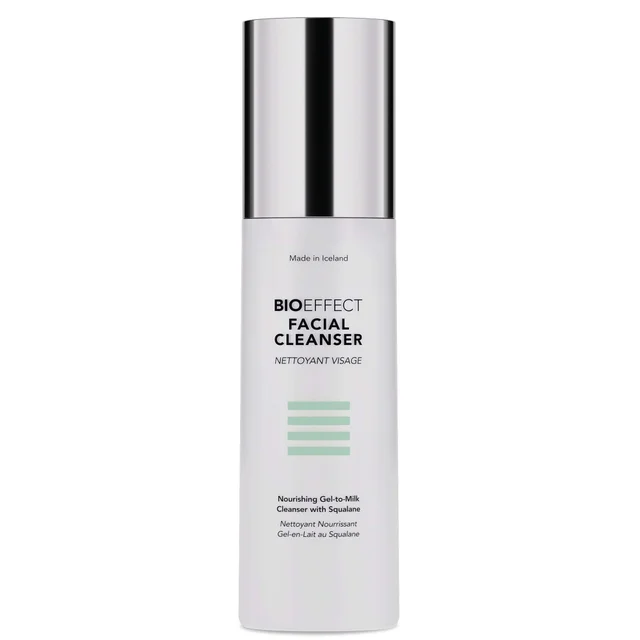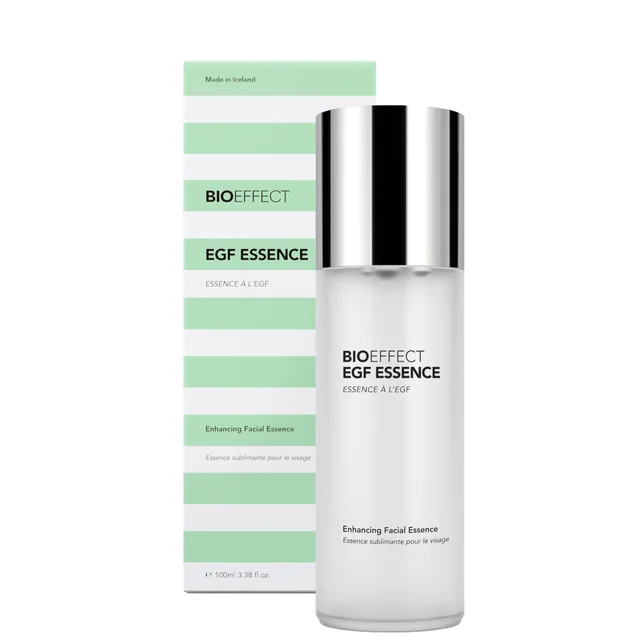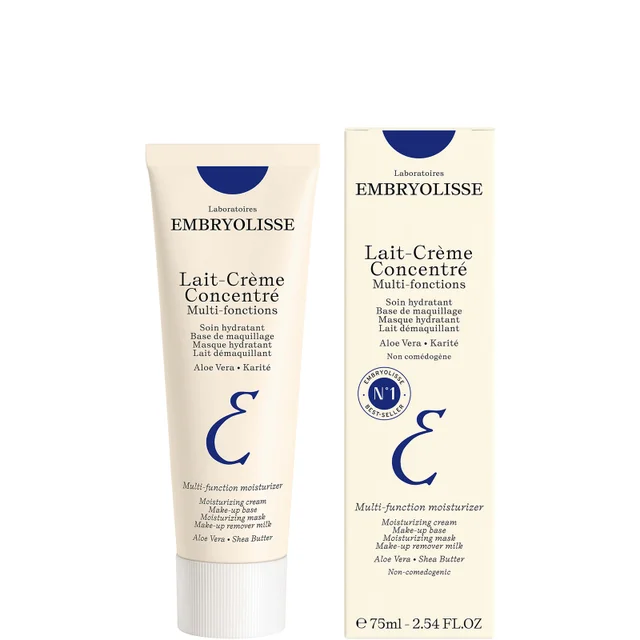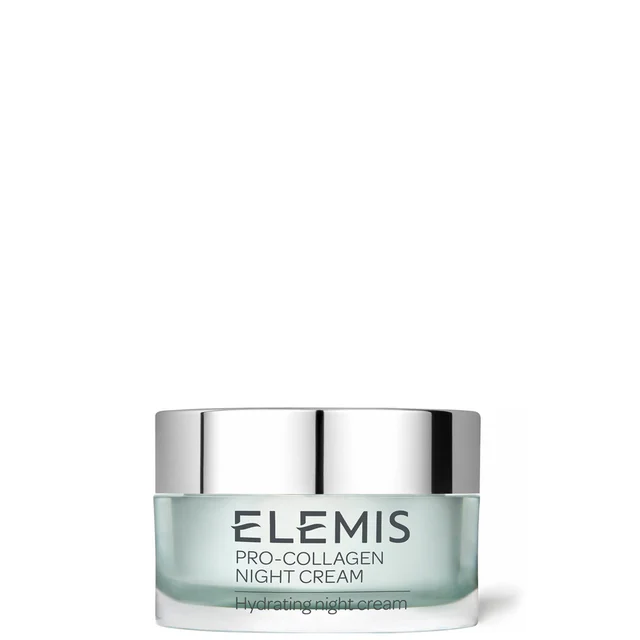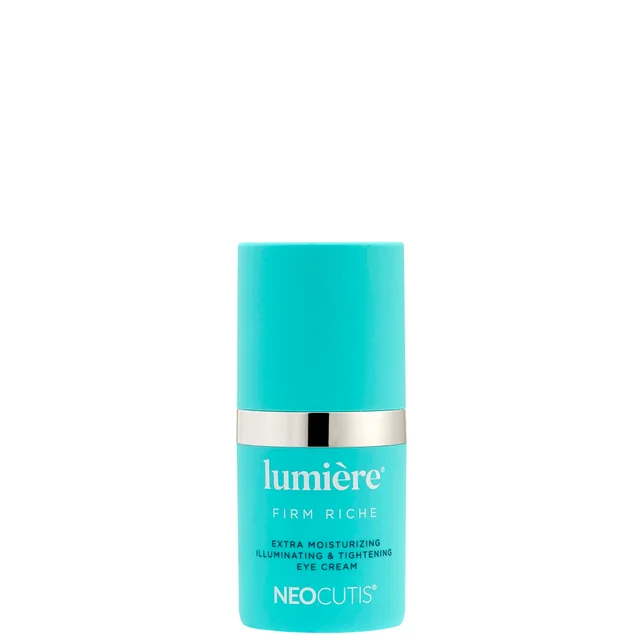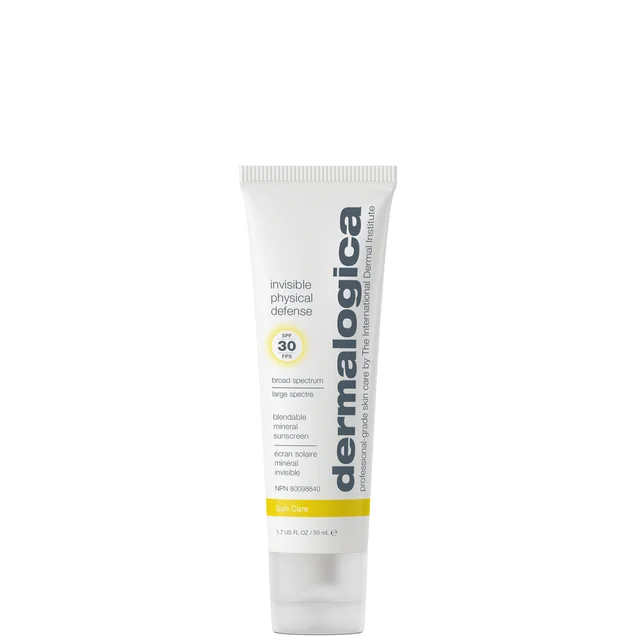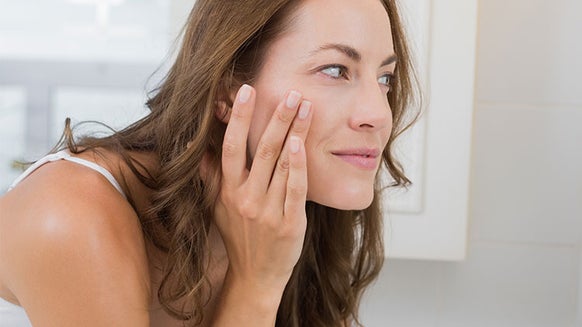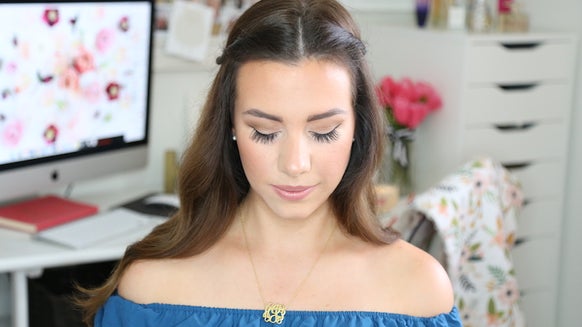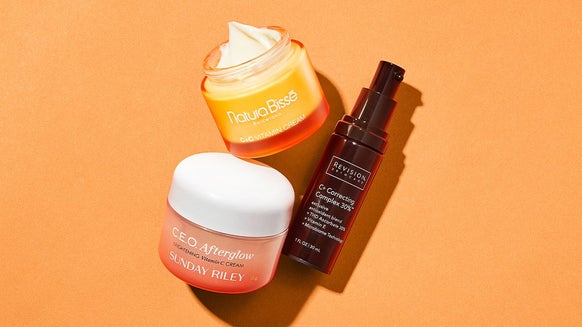How to Hydrate Skin Properly: 9 Dermatologist-Reviewed Tips
Different skin types have their own unique needs, but there’s one skincare must-do that should always be at the top of everyone’s list: hydration. A well-hydrated skin is radiant, supple, and smooth, so if you notice that your complexion is starting to look dull and lifeless, that could mean it’s time to double down on hydration. Luckily, quenching your skin’s need for a drink of water only requires a little bit of adjustment in your skincare routine. Below, we list the best derm-approved tips on how to hydrate skin and maintain its natural, youthful glow.
Meet the Experts
- Dr. Dahlia Rice, board-certified plastic surgeon and founder of DMR Aesthetics
- Dr. Simran Sethi, board-certified physician and CEO and founder of Renew MD
Is Your Skin Dry or Dehydrated?
It’s common to associate dehydration with having dry skin, but the fact of the matter is, not having enough water in your skin can happen regardless of skin type. While dryness and dehydration are often used interchangeably, they’re not actually the same, and knowing whether your skin is dry or dehydrated is key in addressing exactly what it needs.
“Dry skin is characterized by a deficiency in oil production, which may be caused by genetics, but dry skin can also be enhanced or aggravated by environmental factors such as cold temperatures, low humidity, and even harsh skincare products, which result in a rough and flaky texture,” explains board-certified physician Dr. Simran Sethi, CEO and founder of Renew MD, skin by Dr. Simran Sethi, and host of The Skin Report.
On the other hand, dehydrated skin is a skin condition where the skin lacks water and can occur even when the skin is producing enough oil, says Dr. Dahlia Rice, board-certified plastic surgeon and founder of DMR Aesthetics. “Skin dehydration is caused by damage to the skin barrier, causing a lack of water retention and moisture in the skin,” Dr. Rice explains. “All skin types, from oily to dry, can become dehydrated, but people with naturally dry skin might be more prone to dehydration because their skin already struggles to retain moisture.”
9 Dermatologist Tips for How to Hydrate Skin Properly
1. Use a Hydrating Cleanser
Every skincare routine starts with a good cleanser, and for those with dehydrated skin, that means choosing one that also helps nourish the skin barrier. “Use a cleanser that is gentle and non-stripping so hydrating and natural oils are maintained instead of overworked,” says Dr. Sethi.
Featured Product: BIOEFFECT Facial Cleanser
This gel-to-milk cleanser works hard to remove product residue and residue, but it does so in the gentlest, most hydrating way. All thanks to its nourishing squalane-powered formula that supports the skin barrier and rebalances your skin’s pH levels.
Key Ingredients: Squalane, Barley Beta Glucan
Skin Type: All skin types
Beauty Insider Tip: This cleanser is also formulated with Icelandic water, which means it doesn’t contain hard minerals that can worsen dry skin.
2. Exfoliate Regularly
According to Dr. Sethi, not only does exfoliation rid the skin’s surface of old skin cells and debris and even out tone and texture, it’s also essential in helping your skin maintain moisture and absorb products more effectively.
Featured Product: Eminence Strawberry Rhubarb Dermafoliant
Breathing new life to dull-looking skin, this award-winning exfoliant gently removes impurities and excess oil with its blend of lactic acid, strawberry-sourced salicylic acid, and polishing flours. It’s also infused with polyphenol-rich rhubarb and a blend of botanical hyaluronic acid to refresh and rejuvenate skin.
Key Ingredients: Lactic Acid, Botanical Hyaluronic Acid Complex, Strawberry, Exfoliating Flour
Skin Type: All skin types
Beauty Insider Tip: To ensure proper exfoliation, use a small amount of the product and create a creamy paste with your hands before applying with circular motions.
3. Make Hyaluronic Acid a Must
As the ultimate hydrator, hyaluronic acid attracts moisture and holds water in the skin. “It’s particularly effective because it can penetrate deeper into the skin, ensuring long-lasting moisture,” adds Dr. Sethi.
Featured Product: Peter Thomas Roth Water Drench Hyaluronic Cloud Cream Hydrating Moisturizer
Say hello to hydration heaven with this concentrated face cream that features 30 percent hyaluronic acid, delivering up to 72 hours of intense and continuous hydration to parched skin.
Key Ingredients: Hyaluronic Acid, Ceramides, Pentavitin®, Elderberry
Skin Type: All skin types
Beauty Insider Tip: Its hyaluronic acid complex comes in three molecular sizes, ensuring deeper hydration.
4. Consider a Hydrating Essence
If you’re a fan of Asian skincare, you know how obsessed it is with hydration (and rightly so). It has introduced us to a whole new world of ingredients and product types whose main purpose is to drench skin with layers upon layers of hydration, and one of them is essence. Its main job? To soften and hydrate the skin while prepping it for your other skincare products.
Featured Product: BIOEFFECT EGF Hydrating Essence
You’ll never have to deal with parched skin again with this miracle water in your skincare arsenal. This ultra lightweight and fast-absorbing essence pulls moisture from the air and delivers it straight to your skin, prepping it for more potent actives while ensuring proper hydration and improving product absorption.
Key Ingredients: BIOEFFECT EGF, Glycerin, Icelandic Water
Skin Type: All skin types
Beauty Insider Tip: It also works as a hydrating toner and beauty water. Layer a few times to achieve a dewier, glass-like glow.
5. Opt for an Extra-Nourishing Moisturizer
You can’t have hydrated skin without moisturizing as both steps are crucial in maintaining healthy, glowing skin, says Dr. Rice. “Hydration refers to adding water to the skin, while moisturizing involves sealing in that hydration and preventing water loss,” she explains. Doctor Sethi echoes this, and adds, “Choose a moisturizer rich in essential lipids, such as ceramides or natural oils, to reinforce the skin’s barrier and lock in moisture.”
Featured Product: Embryolisse Lait Crème Concentre Multi-Purpose Moisturizer
Don’t let its light and milky texture fool you—this multiuse moisturizer delivers a heavy dose of hydration to dry and dehydrated skin, repairing the lipid barrier, increasing elasticity, and refining fine lines along the way.
Key Ingredients: Shea Butter, Aloe Vera, Beeswax, Soy Proteins
Skin Type: All skin types
Beauty Insider Tip: This does-it-all cream also works as a mask, makeup base, cleansing milk, after-shave, and after-sun care.
6. Switch to a Heavier Night Cream
Water can evaporate from your skin while you sleep, so to make sure you’re getting the most of your beauty rest, use a richer moisturizer that can prevent water loss while supporting cell repair and regeneration.
Featured Product: Elemis Pro-Collagen Night Cream
Wake up with refreshed, hydrated, and radiant skin with this super rich and nourishing night cream. It’s the perfect way to prep your skin for the day ahead, arming it against environmental stressors, improving elasticity and hydration, and leaving it with a supple, from-within glow.
Key Ingredients: Red Algae, Padina Pavonica, Avocado Oil
Skin Type: All skin types
Beauty Insider Tip: Warm a pea-sized amount between your palms and apply gently over face, neck, and decollete and relish up to 24 hours of hydration.
7. Apply a Face Mask
Whether it’s a sheet mask or an overnight cream, masking is a quick and easy way to deliver instant hydration to your skin. Aside from hyaluronic acid, look for ingredients that are as soothing as they are hydrating, such as vitamin E, vitamin C, aloe, green tea, and oats.
Featured Product: PCA Skin Hyaluronic Acid Overnight Mask
Featuring the best of the best skin-loving and hydration-boosting ingredients, this hydration powerhouse is as serious as it can get when it comes to keeping your skin radiant, plump, and hydrated.
Key Ingredients: Sodium Hyaluronate, Hydrolyzed Hyaluronic Acid and Hydrolyzed GAG, Niacinamide, Panthenol
Skin Type: All skin types
Beauty Insider Tip: It also contains calming natural extracts that encourage deep, restful sleep for the best beauty rest ever.
8. Don’t Forget Your Eye Cream
The skin around the eye area is extra delicate, which means it’s also more prone to dryness and water loss. “An eye gel or cream with hydrating ingredients can help reduce dryness and fine lines around the eyes while providing additional barrier protection to this sensitive area,” explains Dr. Sethi.
Featured Product: Neocutis LUMIERE FIRM RICHE Extra Moisturizing Illuminating & Tightening Eye Cream
Infused with caffeine, peptides, vitamin C, and growth factors, this rich and rejuvenating eye cream targets the most common and stubborn concerns in the eye area, including signs of aging, puffiness, and dryness.
Key Ingredients: Growth Factors, Proprietary Peptides, Caffeine, Vitamin C
Skin Type: All skin types
Beauty Insider Tip: Use this product in your daytime and nighttime routines for a refreshed and wide-awake look.
9. Don’t Leave Home Without Sunscreen
Sun damage is the number one cause of premature skin aging and can aggravate existing skin concerns, including dryness and dehydration. “Protecting your skin from the sun using broad spectrum SPFs can help prevent skin damage which can lead to skin dehydration due to increase in water loss,” says Dr. Rice.
Featured Product: Dermalogica Invisible Physical Defense SPF 30
Aside from protecting your skin from UVA/UVB rays, free radicals, and blue light damage, this sunscreen also helps in regulating oil production, calming sun-induced redness and dryness, and infusing your skin with much-needed moisture and hydration.
Key Ingredients: Green Tea, Non-nano Zinc Oxide, Mushroom Complex, Hyaluronic Acid
Skin Type: All skin types
Beauty Insider Tip: Apply this sunscreen 30 minutes before stepping out into the sun to ensure complete absorption and protection.
FAQs
How to Know If You Have Dehydrated Skin
“Telltale signs of dehydrated skin include a dull appearance, tightness, and an increase in fine lines or wrinkles. Your skin may also feel more sensitive or itchy,” explains Dr. Rice. “An easy way to test for dehydration is the ‘pinch test.’ Gently pinch the skin on your cheek or the back of your hand with two fingers—if it doesn’t bounce back quickly, your skin may be dehydrated.”
Do Active Ingredients Cause Dehydration
Active ingredients in serums and treatments are the main stars of any skincare routine, but they can cause and exacerbate dehydration when used haphazardly. The trick, according to Dr. Rice, is to make sure you’re creating a buffer to offset and stave off the dehydrating effect of some active ingredients. “Ingredients like alcohol, salicylic acid, benzoyl peroxide, and retinoids can strip the skin of its natural moisture barrier, leading to dehydration,” she explains. “While these ingredients can be beneficial for specific skin concerns, it’s important to balance their use with hydrating products to protect the skin barrier.”
Does Your Diet Matter?
Diet plays a key role in maintaining hydration not just for your skin, but also for the rest of your body. Aside from following a well-rounded skincare routine, the most effective way to hydrate skin is to do so from within. “Drinking enough water is the most obvious factor, but eating water-rich foods like fruits and vegetables can also help,” Dr. Rice says. “Foods high in omega-3 fatty acids, such as salmon and flaxseed, support your skin’s natural barrier, helping it retain moisture. Avoiding caffeine and alcohol can also prevent dehydration.”
Aside from proper skincare and diet, what else can one do to improve skin hydration?
“Use a humidifier in dry environments to add moisture to the air, which can help prevent your skin from drying out,” suggests Dr. Rice. “Avoid long, hot showers, and try to keep your stress levels in check as stress can impact skin health. Getting enough sleep also helps your skin stay hydrated and healthy.”
The Bottom Line
Making sure your skin is hydrated is super important if you want to keep your skin looking and feeling its best. And one sure way to do this is by following a skincare routine powered by nourishing ingredients that focus on hydrating the skin and supporting its natural barrier. In doing so, you’re enhancing your skin’s ability to hold and retain water while preventing dryness, signs of aging, and a dull and lackluster complexion. Together with drinking enough water, eating a diet of water-rich foods, and a few adjustments in your daily habits, you can achieve healthy, supple-looking, and radiant skin.

Janeca Racho is a Journalism graduate with over 15 years of writing experience. After getting her start in public relations and advertising, she made the switch to freelance writing and began working for various lifestyle, fashion, and travel brands. Her love for all things skincare has led her to beauty reporting and research for the last ten years. Writing for several hair and beauty blogs, she reports on anti-aging staples, trending brands and products, must-have ingredients, and health and wellness.
